On a beautiful and unseasonably warm day 100 years ago Canada experienced its worst man-made disaster. On December 6, 1917 the French munition ship, the Mont Blanc, and the Norwegian war relief freighter, the Imo, collided in Halifax Harbour, setting off a massive explosion that flattened much of the Nova Scotian capital city, killing almost 2,000 people.
It was the largest man-made blast until the Second World War when an atomic bomb was dropped on Hiroshima, Japan, but the events that led up to the catastrophic collision between the two ships continues to linger as historians piece together the burning questions of how did it happen and who should bare the blame for killing so many innocent people.
 The Halifax Explosion is a signature moment in Canadian history and will be the closing act on a year of Algonquin College speaker series events that have focused on the stories that have made Canada the country that is today on this its 150th anniversary year. Author Ken Cuthbertson will be at the Waterfront Campus in Pembroke on November 29 to share the story of the Halifax Explosion, also the title of his new book that has been released just in time for the 100th anniversary of the tragedy.
The Halifax Explosion is a signature moment in Canadian history and will be the closing act on a year of Algonquin College speaker series events that have focused on the stories that have made Canada the country that is today on this its 150th anniversary year. Author Ken Cuthbertson will be at the Waterfront Campus in Pembroke on November 29 to share the story of the Halifax Explosion, also the title of his new book that has been released just in time for the 100th anniversary of the tragedy.
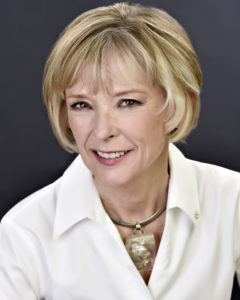 A few weeks later on December 13, acclaimed author and biographer, Charlotte Gray, will be on campus for her talk on the Promise of Canada. Gray has written a book about nine influential Canadians who left an indelible mark on Canada, a relatively young country that is still finding its way according to Gray.
A few weeks later on December 13, acclaimed author and biographer, Charlotte Gray, will be on campus for her talk on the Promise of Canada. Gray has written a book about nine influential Canadians who left an indelible mark on Canada, a relatively young country that is still finding its way according to Gray.
Her stories will focus on some well-known Canadians such as Tommy Douglas, the fiery Saskatchewan politician who is known best as the father of universal health care, but also others who are less known, but their lives influenced Canadian society and culture either intentionally or by accident. The latter is the case for Elijah Harper, a survivor of residential schools, who halted Prime Minister Brian Mulroney’s Meech Lake constitutional accord and forced Canadians to take a deeper look at the plight of Indigenous peoples.
Gray has written a compelling history lesson for all Canadians, including telling the story of Bertha Wilson, Canada’s first woman to sit on the Supreme Court of Canada. Her Canadian story begins in Renfrew where she first settled in Canada after emigrating from Scotland with her husband who was a Presbyterian Church Minister. She eventually would attend law school and be at the centre of some of the most important judicial decisions in Canada’s history as a champion of the country’s Charter of Rights and Freedoms.
Others who made Gray’s list of great Canadians are Margaret Atwood, Emily Carr, Preston Manning, George-Etienne Cartier, Harold Innis and Samuel Steele, the first leader of the Royal Canadian Mounted Police. Through her storytelling, Gray shares how these Canadians impacted our country in a significant way.

The Canadian history series started last fall with Ray Argyle’s colourful talk on Newfoundland Premier Joey Smallwood, the last Father of Confederation. It has also included Steve Paikin of TVO’s the Agenda on his book on former Ontario Premier, Bill Davis, and his influence on the repatriation of Canada’s constitution, Tricia Logan on the Truth and Reconciliation Commission recommendations, Merilyn Simonds on Canada’s most notorious and historic prison-the Kingston Penitentiary, Roy MacSkimming on the Canada-Soviet 1972 Hockey Summit Series and Sean Conway on the Colour and Character of the Ottawa Valley Political Tradition, a fascinating history of Ottawa Valley politics.
It has been a rewarding experience to bring so much Canadian history to followers of the Algonquin College Speaker Series. At 150 years old, Canada has been around long enough to have some great stories to tell.
For more information on ticket purchase for these last two Canadian History guest speakers, please visit our Speaker Series website >>
Posted by Jamie Bramburger, Manager of Community and Student Affairs
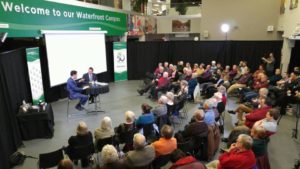
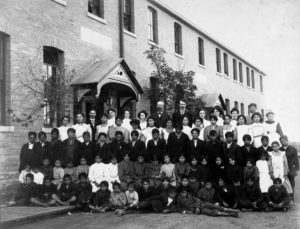
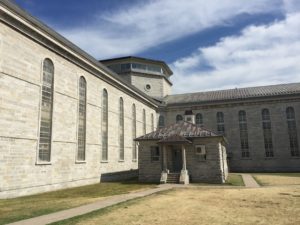

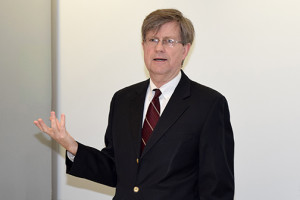
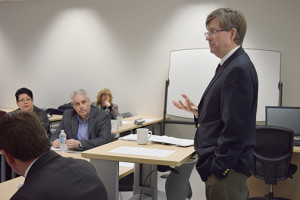
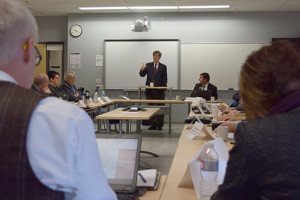 Conway held a three hour discussion at Algonquin College’s Waterfront Campus with about 25 people from Renfrew County. The audience included business owners, human resources professionals, economic development officers, labour market analysts, high school guidance counsellors, and senior administrators from Renfrew County’s District School Boards and Algonquin College.
Conway held a three hour discussion at Algonquin College’s Waterfront Campus with about 25 people from Renfrew County. The audience included business owners, human resources professionals, economic development officers, labour market analysts, high school guidance counsellors, and senior administrators from Renfrew County’s District School Boards and Algonquin College.